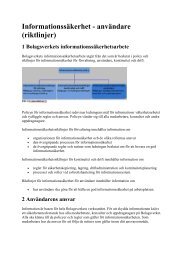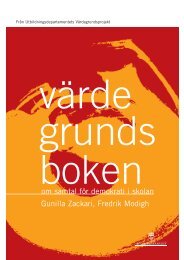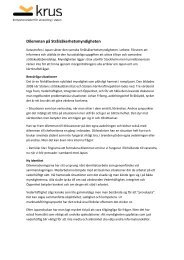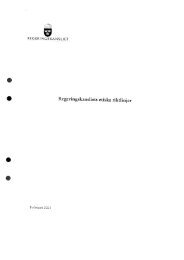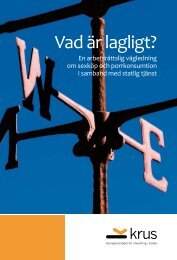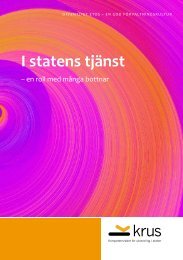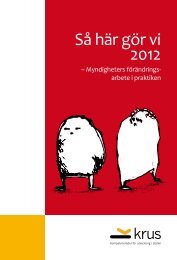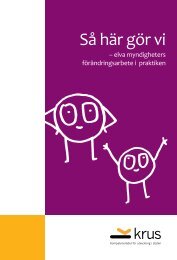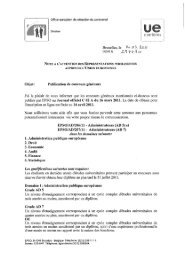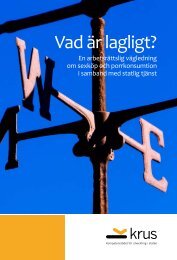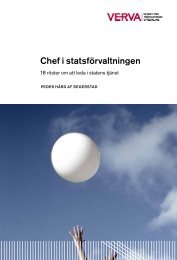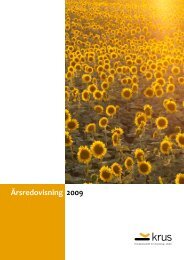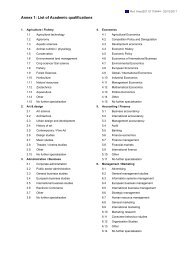Dialogkompetens i skolans vardag - Publikationer - LTU - Luleå ...
Dialogkompetens i skolans vardag - Publikationer - LTU - Luleå ...
Dialogkompetens i skolans vardag - Publikationer - LTU - Luleå ...
You also want an ePaper? Increase the reach of your titles
YUMPU automatically turns print PDFs into web optimized ePapers that Google loves.
knowledge, and, as Wenger emphasises, the driving force for new knowledge is<br />
knowledge that already exists. The participating teachers would not be where they<br />
are today without the driving force of history. I interpret their statements as implying<br />
that new concepts and theories that they did not have before have also served<br />
as support for concretising the present and forming the future.<br />
Wenger’s theory entails a view of knowledge development showing that the<br />
meaning of teachers’ competence development needs widening. When competence<br />
development implies learning from one another’s practices, this may mean<br />
taking part in shadowing, facilitation or video documentation. Teachers regarding<br />
themselves as actors will demand alternative forms of competence development.<br />
Only the teachers themselves can give one another legitimacy for being actors on<br />
the improvement arenas of schools – going from peripheral to full participation.<br />
Concluding remarks<br />
The action research approach of this study was a way of making more actors takes<br />
part in school improvement in a national context. The Dialogue project contained<br />
several ‘advanced balancing acts’, where benefits were sometimes reaped from a<br />
situation of imbalance. Teachers’ practice is too complex for the optimal balance<br />
to be assessed in advance. Since choices between different solutions are seldom<br />
simple, situations sometimes have to be tested in their extreme positions. The<br />
results from this study show that improvement of activities has to consist of advanced<br />
balancing acts in order to contribute to real improvements for the pupils.<br />
Acting in the classroom dialogue as a pupil or on the school improvement arena as<br />
a teacher requires participation and dialogue competence. The oral dialogue between<br />
the pupils was influenced by their awareness of external conditions in the<br />
environment, while the professional dialogue between the teachers was influenced<br />
by their ability to be a critical friend. Participation in the dialogue required that all<br />
actors (pupils, teachers and the researcher) took part in order to develop their participation<br />
and their dialogue competence. A challenge for the future is that the<br />
world of researchers, teacher colleagues and headteachers give the teachers who<br />
contributed to development and research the legitimacy to use and spread their<br />
new competence.<br />
101



